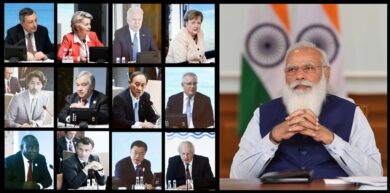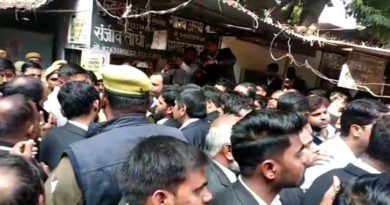Supreme Court Grants Last Extension to Enforcement Directorate in NDTV Case: A Critical Juncture for Regulatory Oversight
(Judicial Quest News Network)
Syed Ali Taher Abedi
5, August, 2024
On Monday, the Supreme Court of India granted the Enforcement Directorate (ED) an additional reprieve in its ongoing legal battle with New Delhi Television (NDTV), setting the next crucial hearing for August 12, 2024. This decision marks what is expected to be the final opportunity for the ED to present its case, following a series of legal manoeuvres and challenges.
The bench, comprising Justice Abhay Oka and Justice Augustine George Masih, issued this order in response to the ED’s appeal against a Bombay High Court ruling that had previously allowed NDTV to contest allegations of violations under the Foreign Exchange Management Act (FEMA) before the Reserve Bank of India (RBI). The case had been under review since December 18, 2020, and has faced numerous adjournments, largely due to requests from the ED.
During the recent proceedings, advocate representing the ED sought additional time for the matter to be listed next week. Justice Oka hinted at a possible shift in stance due to evolving circumstances, suggesting that the current situation might offer a new perspective on the case. His remarks indicate a potential re-evaluation of the ED’s position in light of changing conditions.
NDTV, a prominent Indian news broadcaster founded by Pranay Roy and Radhika Roy in 1988, has faced scrutiny over alleged FEMA contraventions. The case took a notable turn in 2020 when the Adani Group acquired a significant stake in NDTV through its subsidiary, Vishva Pradhan Commercial Private Limited (VCPL), thereby gaining effective control over the network.
The legal saga began when adjudication proceedings were initiated against NDTV for purported FEMA violations. NDTV sought to resolve these issues through compounding applications submitted to the RBI, which were subsequently returned. This led NDTV to file a writ petition challenging the RBI’s actions and the ED’s adjudication proceedings. The Bombay High Court, in its judgment, directed that the compounding proceedings pending before the RBI should continue.
The High Court’s ruling, delivered by Justice SC Dharam Adhikari and Justice Bharti Dangri, emphasized the need for maintaining public trust in institutions such as the RBI and the ED. Senior Advocate Janak Dawarkadas, representing NDTV, argued that there were concerns about the impartiality and independence of these institutions. The court underscored that such concerns should not undermine the credibility and effectiveness of regulatory bodies. It stressed that these institutions must remain free from political interference to maintain public trust and confidence.
The High Court’s 122-page judgment highlighted the critical role of the ED in enforcing stringent laws like FEMA and the Prevention of Money Laundering Act (PMLA). It underscored that these institutions are fundamental to safeguarding India’s financial resources and upholding constitutional frameworks. The judgment cautioned against unnecessary criticism and attacks on these institutions, emphasizing their pivotal role in democracy.
As the case approaches its final hearing, the Supreme Court’s decision will be pivotal in determining the future course of the regulatory oversight concerning NDTV’s operations and the broader implications for institutional integrity in India.




